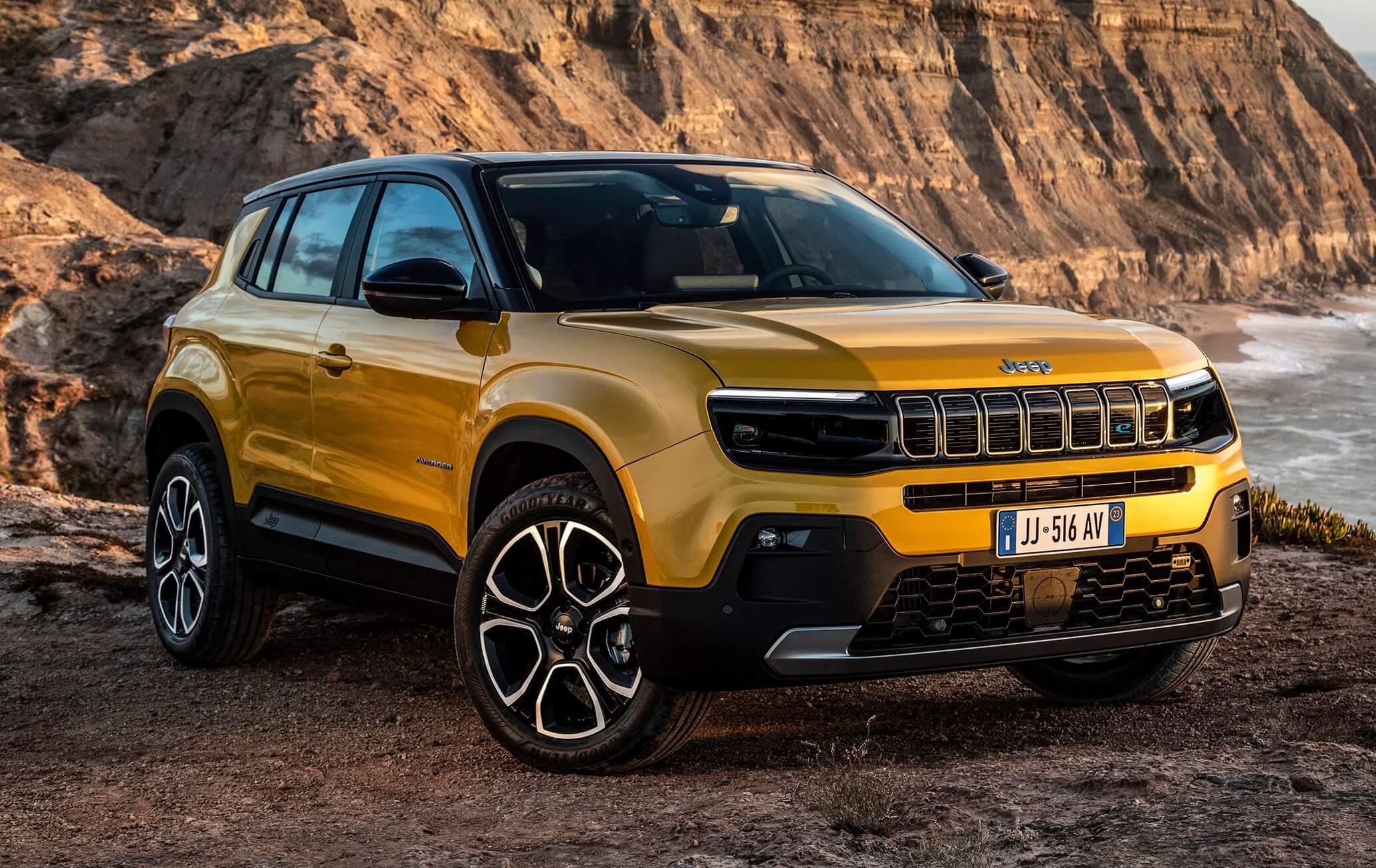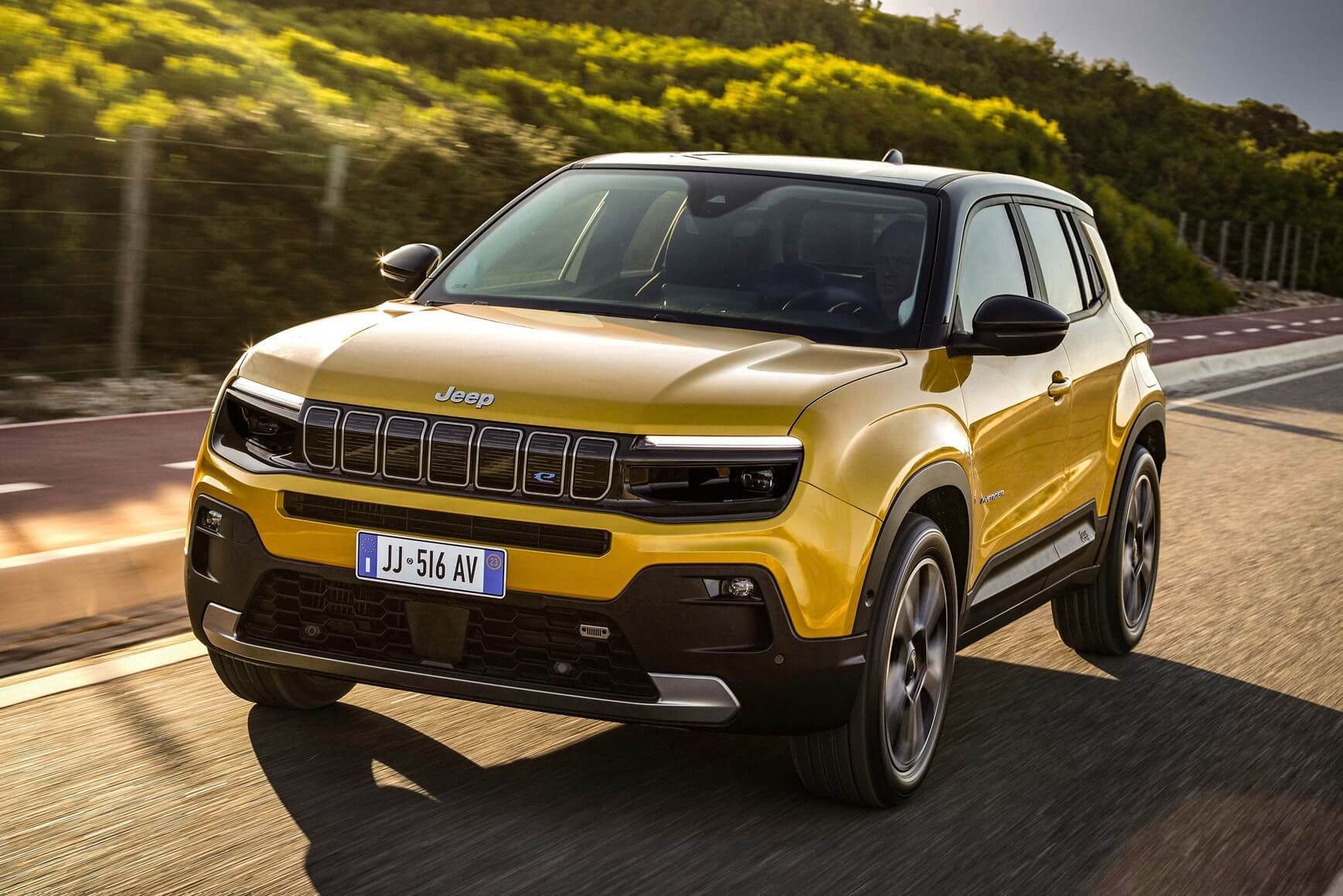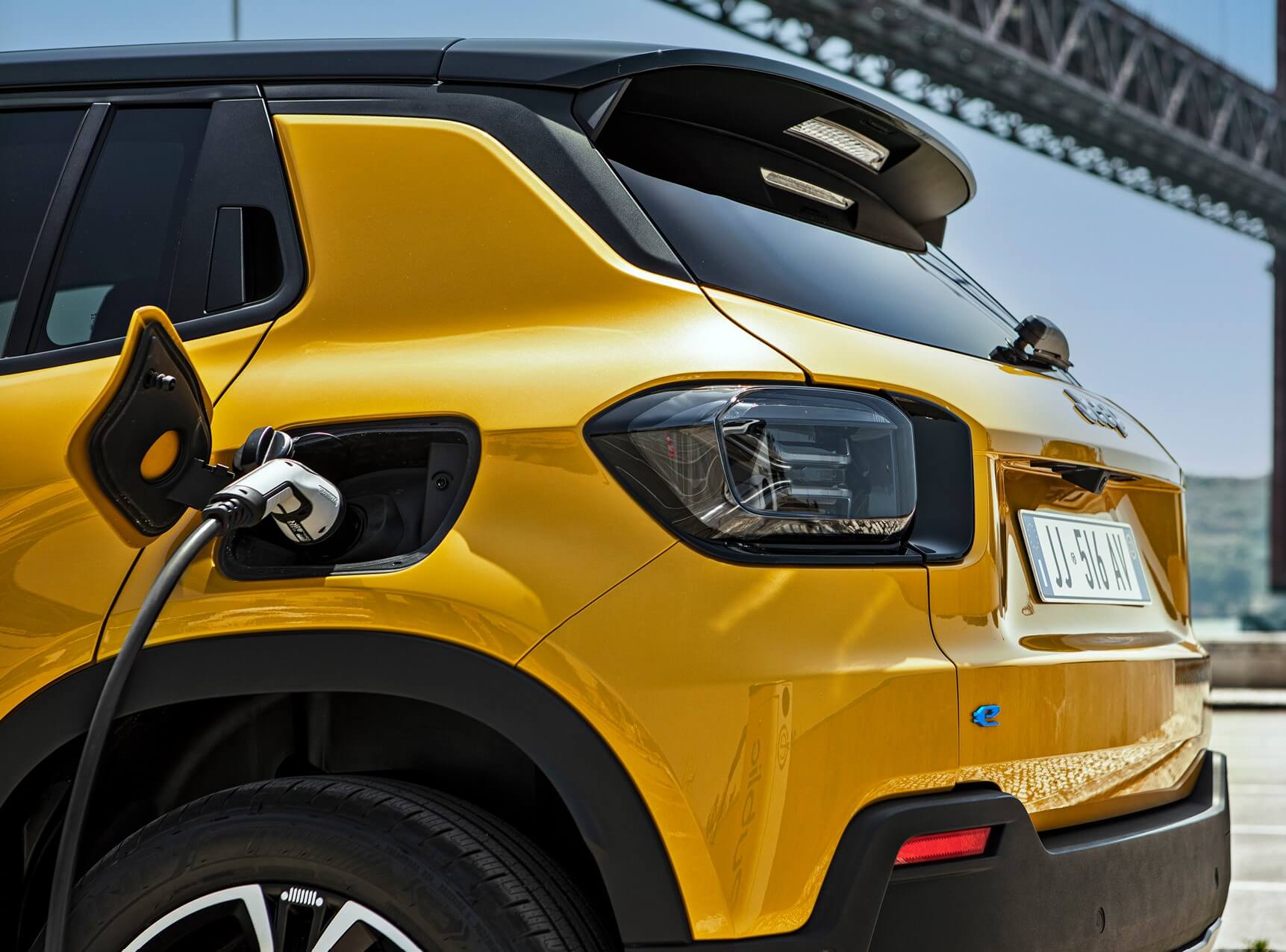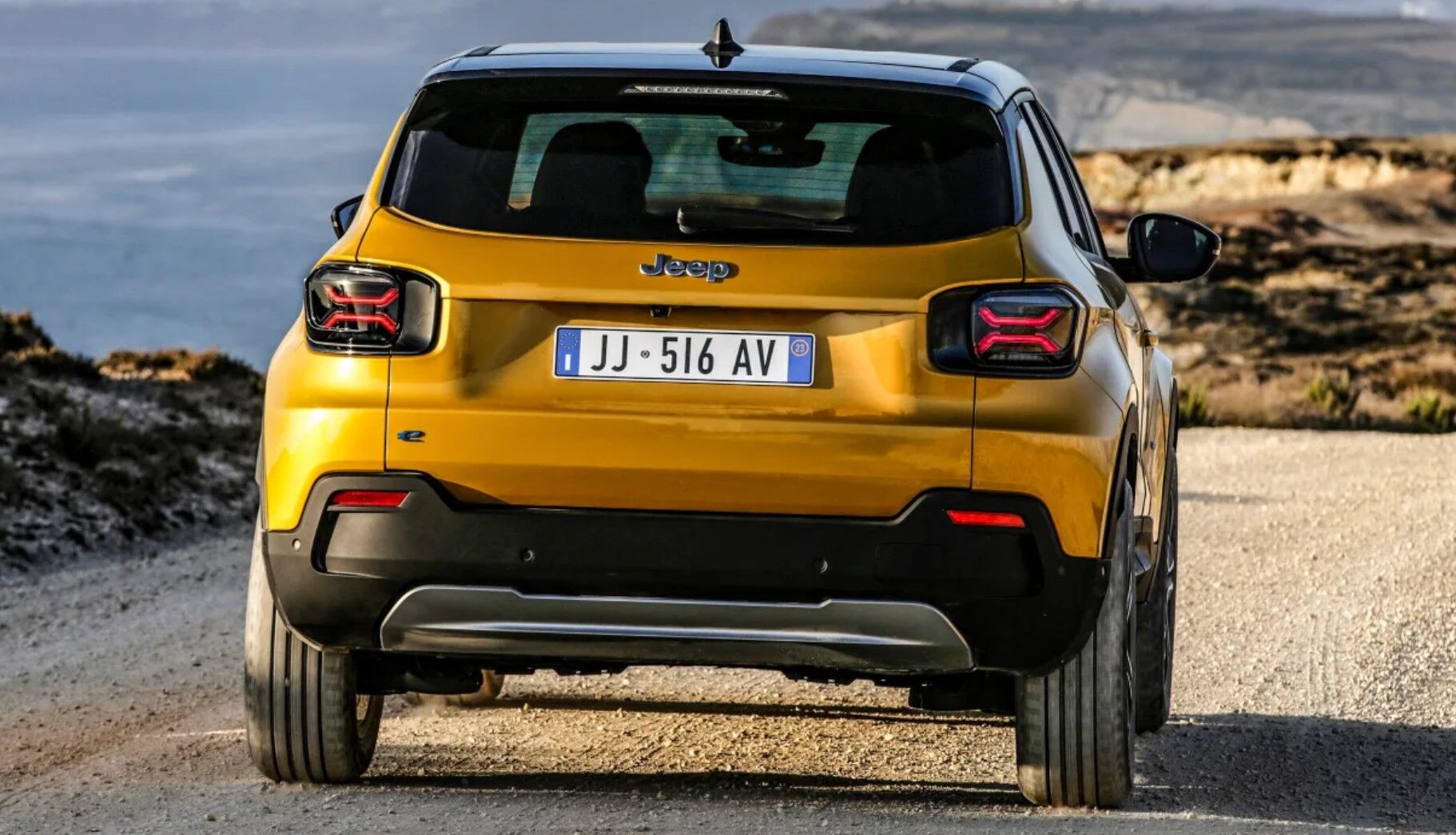New entry-level electric SUV from Jeep detailed with Paris motor show debut.
Update: We have now driven the Jeep Avenger for the very first time.
Jeep is on a path to pure electric – and the iconic American brand’s efforts get really serious with the arrival of the Avenger SUV, which has made its public debut at the Paris Motor Show.
Conceived, designed and engineered in Italy, the Avenger is a compact SUV that’ll rival everything from Stellantis sister vehicles like the Peugeot 2008 to the Hyundai Kona. It’s just under 4.1 metres long, so it will be the baby in Jeep’s line-up, beneath the Renegade and Compass. It is aimed squarely at European customers and is yet to be confirmed for Australia, although the upcoming Recon and Wagoneer S have been.
The Avenger sits on an evolution of parent group Stellantis’s e-CMP platform, called e-CMP2. This new architecture has a number of key differences from the tech that underpins the current Peugeot 2008, Opel Mokka, and DS 3. Input from Jeep has helped to shorten its car’s front and rear overhangs, improving its potential for off-roading. It sits higher than any previous CMP model, with at least 20cm of ground clearance. And the firm has also widely tipped to have engineered in four-wheel drive.
The overall look is predictably chunky – but the design team, which had the brief of “fitting 100 per cent of the brand DNA into four metres”, has done a good job of making its offering clearly a Jeep, and different from other CMP-based models. There’s a wide, planted-looking stance and at the front, an evolution of the Jeep seven-slot front grille that’s now flush to emphasise the car’s electric powertrain. Jeep plans to offer customisation of this part – everything from graphics to illumination. The side profile features a ‘kick’ at the C-pillar, like many larger Jeeps, and the rear has a fresh take on the ‘X’ tail-lights. This motif has also been adopted on surfaces inside the vehicle.
Other rugged features include lights that are set back into their mouldings, for extra protection, and underbody skid plates that are made from a coloured material instead of being painted and thus more prone to scrapes and scuffs.
The Avenger features the latest version of Stellantis’s electric powertrain because in all but a couple of European countries, it is designed to be a pure-electric offering only. The battery capacity is 54kWh (51kWh usable), comprised of 10 cell modules in the rear of the car (beneath the back seats, basically) and seven modules under the front seats.
Elements including a heat pump and a three-phase 11kW AC charger will be standard across the range, along with 100kW DC charging that can take the car from 20 to 80 per cent of charge in 24 minutes.
The Avenger is being introduced in front-wheel-drive form, with a single motor producing 115kW and 260Nm of torque. Jeep hasn’t released any performance figures yet, but it says the more efficient set-up will be capable of taking the 1541kg vehicle up to 400km between charges on the WLPT test cycle, and as much as 550km in slower, stop-start city situations.
Regardless of the initial front-drive layout, Jeep says the car is as capable off road as some of its stablemates – with better approach, breakover and departure angles than the larger Renegade. The suspension configuration is MacPherson struts at the front and a twist beam at the rear, though this is likely to change to a multi-link affair for four-wheel-drive versions. The car features a hill descent control and six driving modes to help with efficiency and poor conditions – eco, normal, sport, sand, mud and snow.
Inside, there are up to 34 litres of storage space in the cabin itself, and the boot capacity is 380 litres. Based on our experience with a static display model, the car has a little more rear-cabin space than the Mokka, and decent headroom for six-footers – although an optional panoramic sunroof might make the Avenger less generous on this score.
There’s a single size of infotainment screen – a 10.25-inch affair that features an Android-based operating system, and wireless smartphone hook-ups for both that OS and Apple CarPlay, but TomTom-based built-in navigation. There’s a fully digital instrument panel on all models too, although it will be seven inches in size on lower-end editions, and 10.25 inches further up the range. The other dashboard controls look clean and uncluttered, with simple drive-selector switches at the bottom of the centre console and a row of conventional buttons for heating and ventilation above them.
Jeep is launching the Avenger with a choice of seven paint colours and alloy wheels ranging in size from 16 to 18 inches. The car’s line-up will feature Jeep’s usual three trim levels – Sport, Longitude and Limited – although the company has yet to specify equipment lists for these versions. There’s likely to be a fully laden First Edition during the first few months of right-hand-drive sales too, based on Limited sepc but with exclusive alloy wheels and flashier interior trim.
Customers will also be able to customise their cars extensively through their dealership. Around 100 accessories will be available, including graphics for everywhere from the roof to the bonnet and the flanks, designed to ensure that no two Avengers will be exactly the same.
The Jeep Avenger will be built alongside a forthcoming Alfa Romeo baby SUV at the Tichy plant in Poland.
John McIlroy







